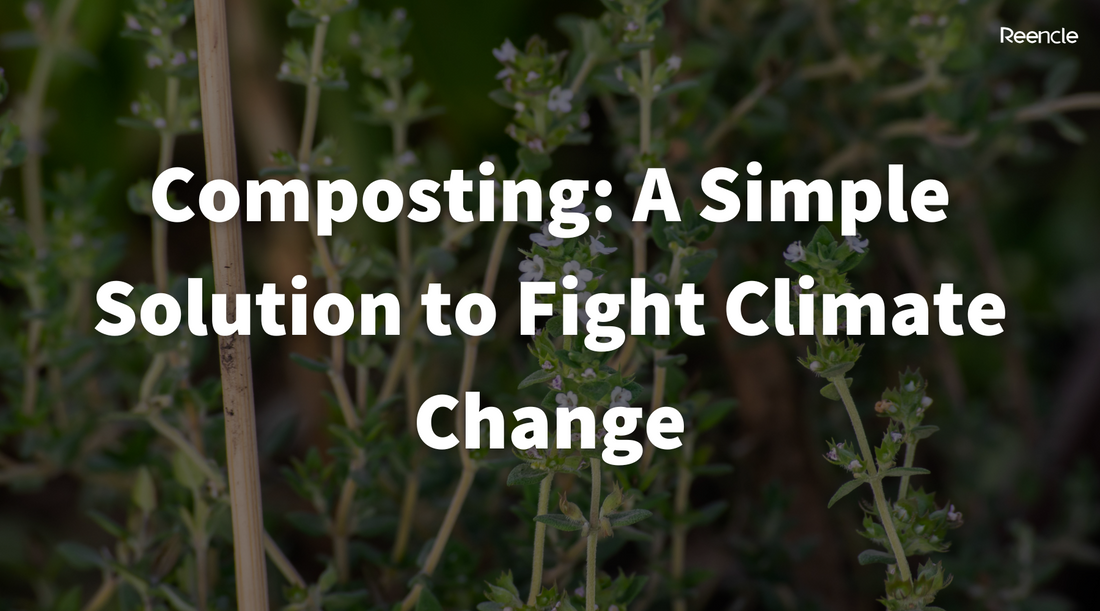Climate change is one of the most pressing global challenges of our time. The consequences of a warming planet are becoming increasingly apparent, with more frequent and severe weather events, rising sea levels, and disruptions to ecosystems and agriculture. While addressing climate change may seem like an overwhelming task, there are simple, effective solutions that each one of us can embrace in our daily lives.
Composting is one such solution that not only reduces waste but also plays a significant role in mitigating climate change. In this article, we will explore the importance of composting and how it can help combat climate change.
The Carbon Connection
At the heart of the climate change issue lies the excessive concentration of greenhouse gases in the atmosphere, primarily carbon dioxide (CO2). These gases trap heat from the sun, leading to a rise in global temperatures. One of the biggest contributors to this problem is the excessive disposal of organic waste in landfills. When organic materials like food scraps and yard waste decompose in landfills, they produce methane (CH4), a potent greenhouse gas that is over 25 times more effective at trapping heat than CO2 over a 100-year period.
Composting, on the other hand, provides a natural and sustainable solution to this issue. When organic matter is composted, it undergoes controlled decomposition, producing carbon-rich, stable humus. This process prevents the release of methane and instead locks carbon away in a more stable form, making it a vital tool in reducing greenhouse gas emissions.

Reduced Energy and Resource Use
Composting doesn't just have a direct impact on greenhouse gas emissions; it also reduces the carbon footprint associated with waste management. In a world where resources are finite, the production, transportation, and disposal of waste require significant energy and resources. When we compost organic waste, we reduce the demand for landfill space, incineration facilities, and the energy required for waste collection and transportation.
Moreover, the resulting compost can be used to enrich soil, reducing the need for chemical fertilizers. This, in turn, lowers the environmental impact of agriculture, which is a major source of greenhouse gas emissions. By keeping organic matter out of landfills and incinerators, composting helps conserve valuable resources, reduce energy consumption, and mitigate climate change.
Improved Soil Health
Beyond mitigating climate change, composting offers another significant environmental benefit: it improves soil health. Healthy soils act as carbon sinks, sequestering carbon from the atmosphere. Compost enriches soil by enhancing its structure, water retention, and nutrient content. This, in turn, supports plant growth and promotes carbon sequestration, further assisting in the fight against climate change.
Compost's ability to improve soil quality is particularly important in an era of intensifying agriculture. It reduces the need for synthetic fertilizers and chemical pesticides, which not only have adverse environmental impacts but also require substantial energy for their production. Healthier soils also help in preventing soil erosion, conserving water, and fostering biodiversity, all of which are crucial for a sustainable future.
Encouraging Sustainable Practices
Composting not only reduces the negative impact of organic waste but also encourages a broader shift towards sustainable practices. When individuals, communities, and businesses adopt composting, it signals a commitment to environmental responsibility. This can lead to a cultural shift that promotes other eco-friendly habits and initiatives, such as reducing single-use plastics, conserving energy, and supporting local, sustainable agriculture.

Practical Steps to Promote Composting
If you're inspired to join the fight against climate change through composting, here are some practical steps to get started:
Educate Yourself: Learn about the basics of composting, including what materials can be composted and what can't.
Choose the Right Location: Decide whether you want to compost in your backyard, use a compost machine like Reencle, or participate in a community composting program.
Collect Organic Waste: If you opt for traditional/manual composting, set up a separate container for collecting kitchen scraps and yard waste. Make sure to balance green (nitrogen-rich) and brown (carbon-rich) materials for effective decomposition.
Monitor the Process: Regularly turn and aerate the compost pile or bin to ensure proper decomposition.
Use Compost: Once your compost is ready, use it to enrich your garden soil or donate it to community gardens and local farmers.
Advocate for Change: Encourage your community, local businesses, and policymakers to embrace composting as a climate-friendly practice.
Try Automatic Composters: With development in technology and new milestones being hit in research everyday, composting no longer has to be a tedious and difficult process. New automatic composters like Reencle can be kept in your home thanks to their odourless, compact design.

We hope this article made you realize that composting is a simple yet powerful tool in the fight against climate change. By reducing methane emissions from landfills, conserving resources, enhancing soil health, and encouraging sustainable practices, composting offers a range of benefits that can make a real difference. Whether you're an individual looking to minimize your carbon footprint or a community aiming to promote environmental responsibility, composting is a practical and effective way to combat climate change and contribute to a more sustainable future. Start composting today and be part of the solution to one of the most pressing challenges of our time.
Want to compost without the tediousness? Check Reencle out! Reencle effectively turns food scraps into nutrient-packed compost within 24 hours! Get RM400 off when you sign up here now.

